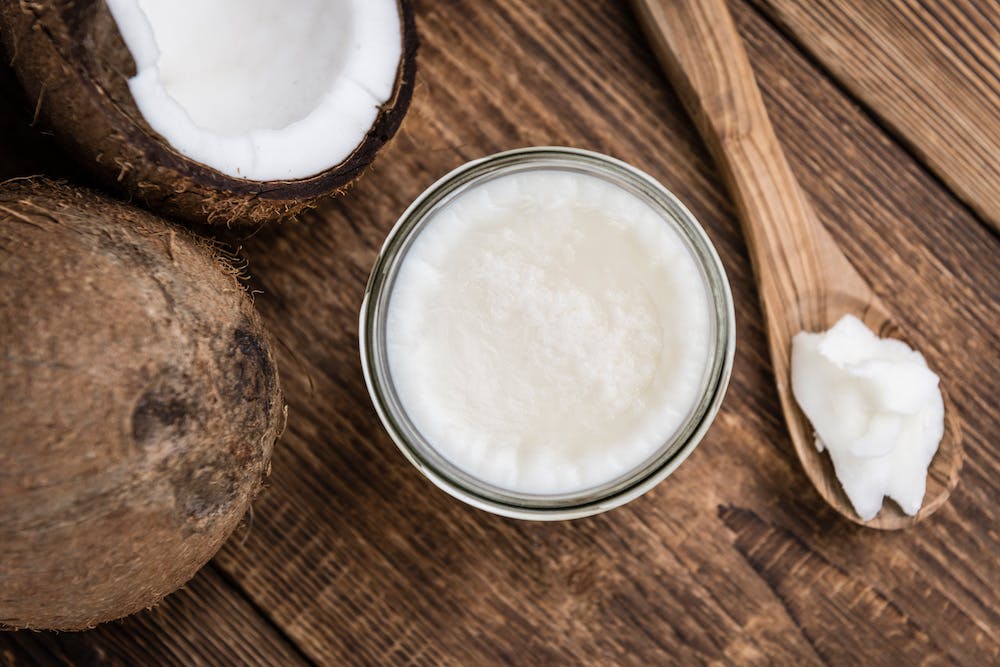
Loved by fitness gurus like Joe Wicks, coconut oil has become increasingly popular in recent years, but is it all it’s cracked up to be?

Coconuts: just the thought of them transports you to a tropical paradise. Over the years, they’ve come up in various diet myths – who didn’t get drawn into drinking copious amounts of coconut water? – and now the latest “superfood” praised for its nutritious goodness is coconut oil. But it’s a contentious one, given that a study by The New York Times found 72% of the US public believed coconut oil to be healthy, while only 37% of their expert nutritionist panel agreed. So, what’s the truth?
Aside from seeming a lot more exciting and exotic than other vegetable oils, studies have found that people who include more coconut in their diets have higher levels of HDL cholesterol – linked to lower rates of strokes and heart disease – which is often attributed to the high proportion of lauric acid in coconut oil.
Additionally, some people claim that the medium-chain fatty acids (MCFAs) in coconut oil can help reduce your body weight, supported by research by Marie-Pierre St-Onge in 2003. Her study found those consuming a diet rich in medium-chain triglycerides (high concentrations in coconut oil) lost an extra pound compared to those who ate similar amounts of long-chain triglycerides.
Just two tablespoons of coconut oil are equivalent to a woman’s recommended daily amount (RDA) of saturated fat
A lot of food scientists are concerned by the public perception of coconut oil as a superfood when it contains a serious amount of saturated fat – around 92%, which is more than lard or butter!
Just two tablespoons of coconut oil are equivalent to a woman’s recommended daily amount (RDA) of saturated fat, so it’s one to be wary of. While not all fats are bad, saturated fats have been proven to raise cholesterol, and increase the risk of strokes and heart attacks. The World Health Organisation suggests making use of the healthier, unsaturated fats found in fish, nuts, and sunflower and olive oils instead.
You might be thinking: “How can coconut oil increase both the good and bad cholesterol?” Well, this happens to be a trait in most saturated fats, but the important part is the ratio between these types of cholesterol – the bad can offset the good.
Furthermore, despite the claims, the European Food Safety Authority says there isn’t enough evidence to prove that coconut oil can help you to lose weight.

Typically costing more than £6 for 250ml, coconut oil is a pricey alternative to vegetable oils for cooking, and a lot of the claims around its benefits are unsubstantiated.
While you shouldn’t be afraid of including fats in your diet, it’s important to be conscious of the amounts you’re cooking with. Use less than two tablespoons of coconut oil a day when cooking, or risk exceeding the RDA for saturated fat.
Also, remember that substituting your cooking oil for something deemed “healthy” won’t make a difference if the food you’re cooking is unhealthy. A healthy diet isn’t about changing one element; it’s about ensuring every plate contains a balance of each food group.
If you cook with coconut oil instead of vegetable oil, make sure you’re aware of the genuine nutritional content – don’t be fooled into thinking your dinner will be a healthy haven when it could end up being more of a paradise lost

